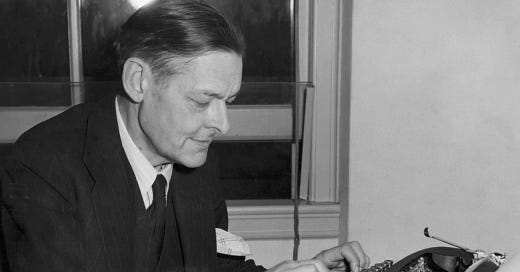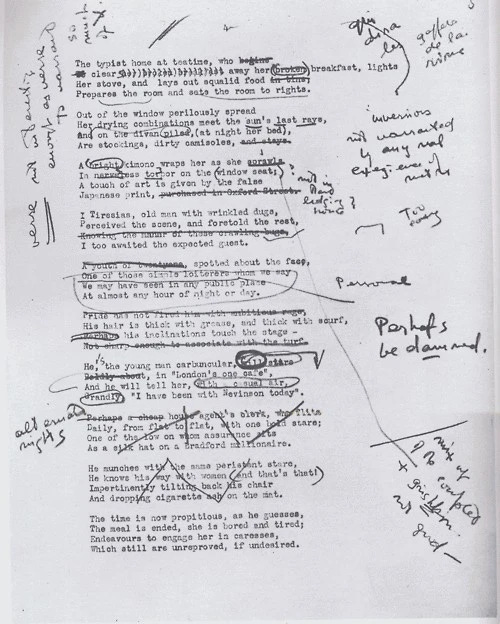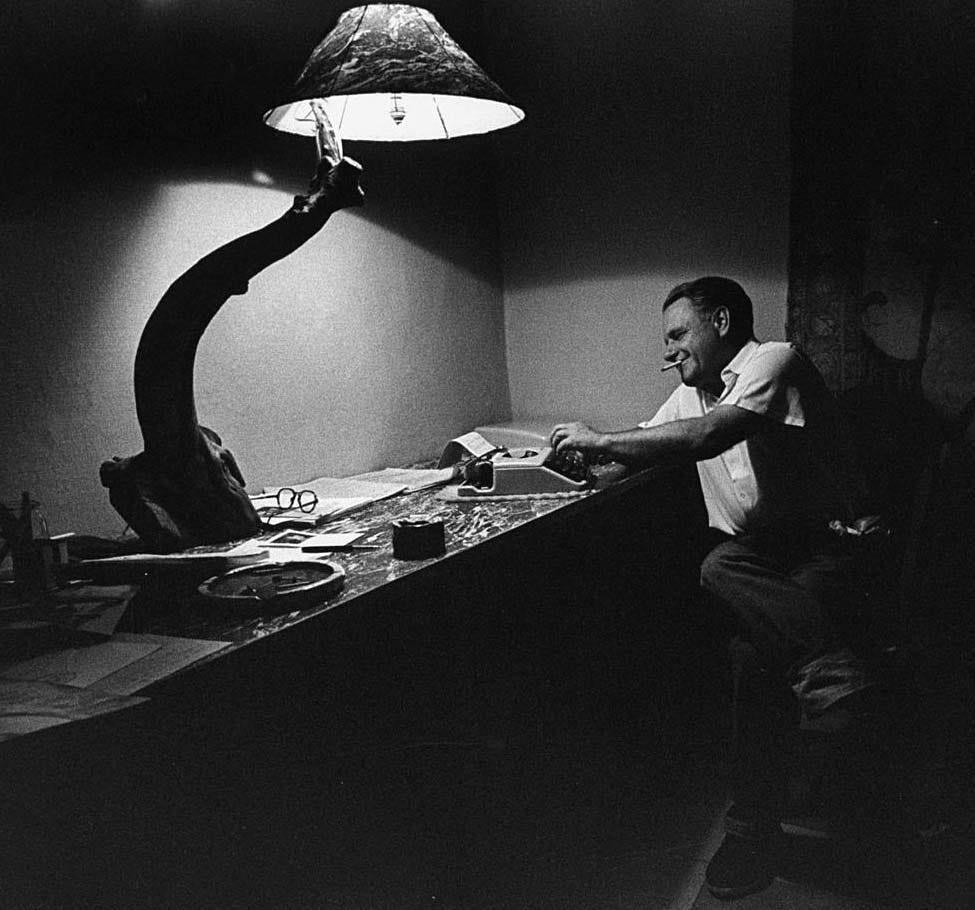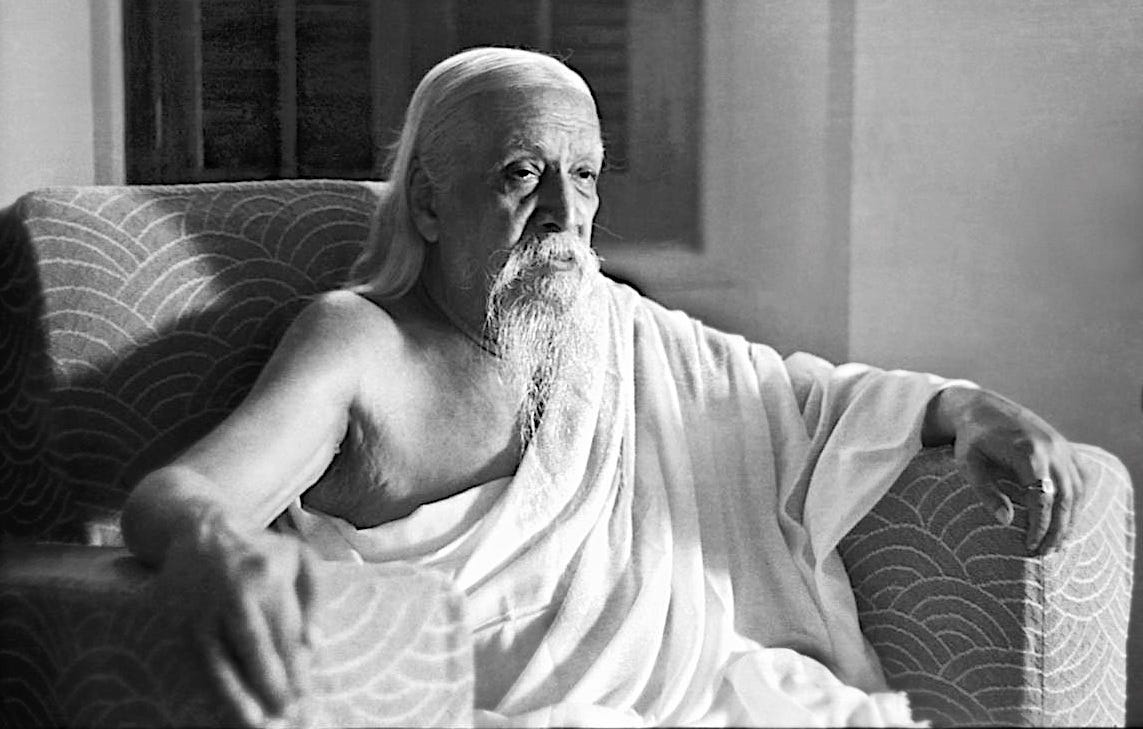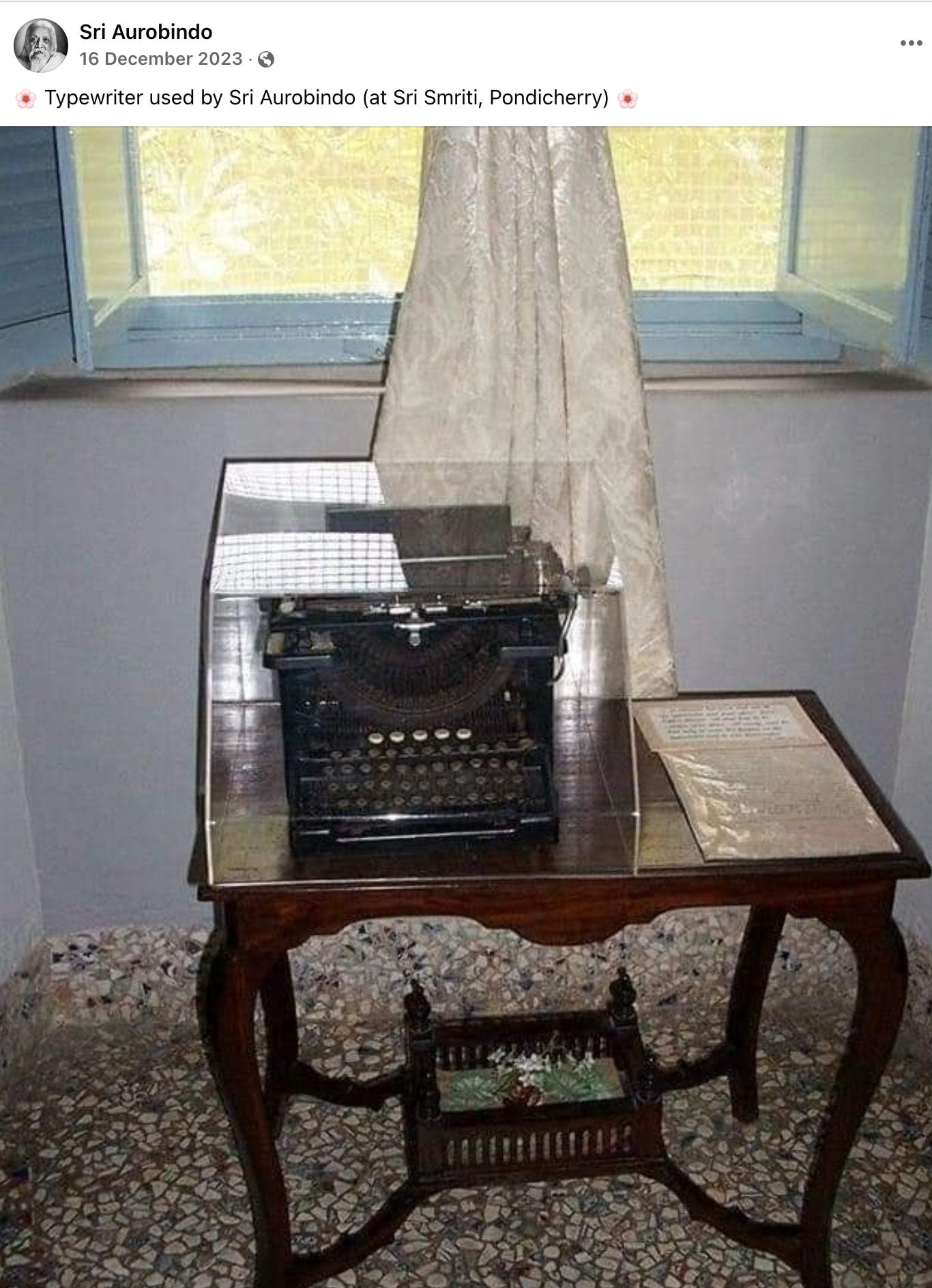The Quest for the Perfect Writing Flow
TS Eliot, Agatha Christie, And some guidelines for avoiding the forever search.
The quest for the perfect machine is never-ending. I dislike that questing aspect, actually.
Here's why.
I once had a guitar I loved. Every time I'd enter a room, I'd play that guitar, a custom-luthier job that I'd picked up used somewhere. It was a glorious beast, if overbuilt.
After I sold it, to 'upgrade', I found better guitars, sure. And non ever touched the inspiration of that original one.
The same goes for typewriters.
I had a Smith Corona Silent for 20 years, and when I let it go, major interruption to writing. Nothing has been able to replace it yet, not event the same model.
It was like TS Eliot’s shown here:
“In August 1916, he told Aiken that he was composing on the typewriter and enjoying lucidity and compression as a result. Most likely, he was thinking of his prose when he wrote this, but it may not be a coincidence that from that moment no draft manuscripts at all survive until the pages of The Waste Land in 1921. Some papers may have been written and destroyed in the act of transfer onto the machine, a moment which, to Eliot, marked the end of their practical value; but the condition of some initial typescripts—many in states of reasonably heavy revision—suggests that at this time Eliot was making his first drafts directly onto the typewriter.
Or at least that he was making his first full drafts on the typewriter, allowing for the possibility that fragmentary scraps or “scattered lines,” as he referred to them when writing to John Quinn, had provided a source from which to draw—what in Margate later in 1921 he gave another name to, when he called them “rough” drafts.
Two years after the publication of The Waste Land, he said of “The Hollow Men” in 1924 that “I compose on the typewriter,” and repeated the phrase word for word to a poet in 1927, adding: “The nearest approach to a manuscript I ever have is the first draft with pencil corrections.” 1
TS Eliot typed page, corrected by Ezra pound. Look how high the ‘T’ is. A few contemporary writers would freak out about that. TS Eliot didn’t care; anyway he wrote his masterpiece anyway. Elite typeface.
So the key is, I think, to be less consumerist and learn to work with the instruments we have. To master them to such a degree that they fall out of the mind; to become fluent. In the language equivalent, to begin to think in the once-foreign tongue.
This takes time, practice, persistence. It's an incredible gift.
Now, without the familiar writing machine, I'm like a man lost in the desert; like Beethoven without the piano (less hair, too).
So what must I do? Well, earn familiarity again. I'm working on that now.
However, I estimate that I lost years of songwriting and writing to shopping. A sad trade, by any account!
Channel the desire.
Ok, I confess I like to shop for typewriters and to buy them and the thrill of opening them. What did I do?
I channeled that into the Classic Typewriter Co. Now I get that aspect of typewriter collecting, without really collecting (because they go to clients.
Where can you channel the energies that get in the way of writing?
Another example, I would write beautiful social media posts, and pour my heart into the digital void. No! I started to write with that energy into my book in progress, or a journal.
Another example is if you’re a food or sex addict, write those addictions out. (Unless that makes it worse for you, then do the opposite).
Or if you have a penchant for crime and murder, don’t murder. Do what Agatha Christie did with her Remington 5… invent Poirot.
Don't die.
If you write steadily, you will improve. Steadily doesn't mean 8 hours per day, it means every day or nearly every day.
People give up in the short term, in general, instead of sticking with the long term. A page per day = 365 pages per year. A prodigious output by most accounts. A page per day is easy, by the way. Usually my challenge now is keeping to a page per day. Like Henry Miller suggested, you want to go away from the typewriter with some life left in you... not fully spent.
Some authors (like Hemingway) ended their daily writing mid thought, so they'd have an access point when they re-entered.
So, think in forever terms. It'll help.
Use literature to evolve.
I've been thinking of literature as personal evolution for the writer, which then transmits to the reader. Henry Miller is a classic example of this, and he is not as well-known as other authors of the 20th century not because of quality but because of censorship and sexual content.
Lawrence Durrell considered is Avignon Quintet his masterpiece, works of brilliance that threaded together evocative impressions to create a whole. Few ever read those.
(Durrell at his Olympia SF. My daughter has a teal one of these. She won’t let me use it. )
Sri Aurobindo achieved and maintained a level of awakening that is almost unparalleled in the written word, and his only practice was writing. I found out recently that he wrote on a typewriter when he could, which makes sense.
If a pen worked better than a typewriter, a typewriter never would have been invented. Truly. Because before that, everyone wrote with a pen.
A pen only suffers in terms of legibility and speed. Though I love pens as well.
Hemingway with a pen…
Letters.
Another component of the men above is that they wrote voluminous letters with pens and also with typewriters. Aurobindo wrote massive quantities of letters and nothing else, mostly on notions of Yoga and the Vedas.
Nothing beats a typewriter for letters because we need to share ideas, and in this digital age, most of us don't have legible handwriting anymore. And even if we do, it is not as legible as print, obviously.
So in summation, type more letters and spend focused time cultivating your writing voice as you come into flow with a machine.
Master the machine and avoid the trap of ‘constant never ending improvement’ when it comes to a typewriter: direct that toward the work itself.
That's the secret of a happy, productive life, in my experience.
Write on,
Steven Budden | Entrepreneur, Investor, Existential Detective
The Classic Typewriter Company
https://lithub.com/thats-not-typing-its-writing-how-t-s-eliot-wrote-the-waste-land/

